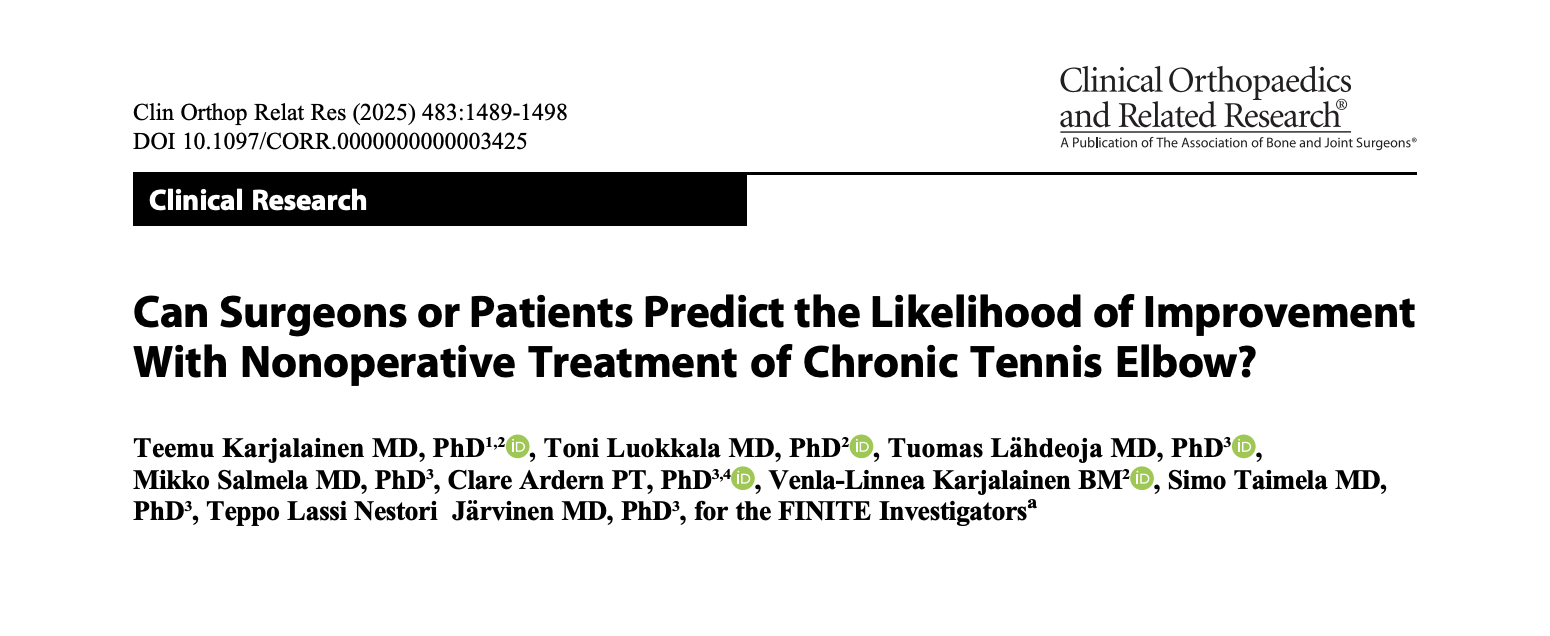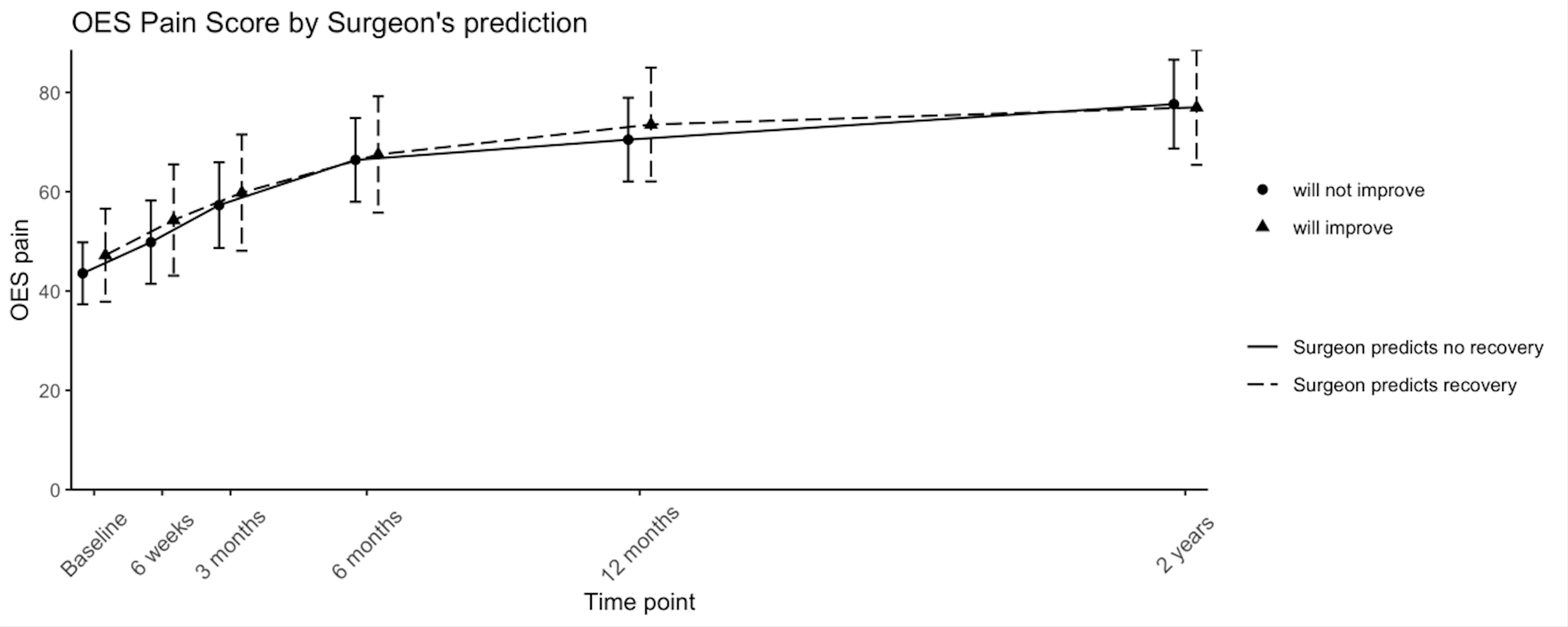Can doctors predict who gets better without surgery?

Many of us in healthcare might like to think that with enough clinical experience, we develop a “clinical eye”, are fined ability to predict who will benefit from surgery and who won’t. It’s a comforting notion: after seeing hundreds of patients, surely we can distinguish those who are likely to recover with nonoperative treatment from those who truly “need” surgery?
We thought so too.
But because surprisingly little research has tested this assumption, we designed a study to investigate it.
In this multicenter observational study published in Clinical Orthopaedics and Related Research, Teemu Karjalainen and Tuomas Lähdeoja led a national team to follow patients with long-standing tennis elbow symptoms who had been referred to a surgeon due to dissatisfaction with nonoperative treatment.
What did we find?
- Most patients (over 90%) felt better at 1-2 years from start of the study without surgery, even after 10+months of symptoms before the enrolment
- Surgeons were not able to predict who would recover and who would not
- Interestingly, patients’ own predictions were slightly better than surgeons’, but only modestly so

The study challenges perhaps the most common justification for surgery in musculoskeletal disorders: that long-standing symptoms indicate a poor prognosis without surgery, or represent “failed” nonoperative treatment. Yet in our cohort, nearly all patients recovered without surgery, and most without any active treatment at all. These findings suggest that the assumption may reflect cognitive bias rather than clinical reality.
Interview with the study leads
Q: What sparked the idea for this study?
A: While discussing with colleagues, we kept encountering the same justification for surgery despite trials showing no benefits for surgery: 'Well, maybe we still need to operate those who have failed nonoperative treatment.' But we realized that this assumption hadn’t really been tested. With persistent symptoms, has non-surgical treatment truly failed and can we actually predict who won’t improve without surgery?
Q: Were you surprised by the findings?
A: Honestly, yes and no. We suspected the predictions wouldn’t be great, but the complete lack of association between surgeon prediction and actual recovery was sobering.
Q: What does this mean for clinical practice?
A: It’s a call for humility. If we can’t predict who will improve, then maybe we shouldn’t be using our intuition to steer patients toward surgery, especially when evidence shows that most will get better on their own.
Q: What’s the next step?
A: We need to design trials that test whether any subgroup of patients with tennis elbow might benefit from surgery, e.g. those who don’t believe they could recover without surgery Until we can show that some patients benefit, we should be cautious about assuming that we can see the future and operate based on assumption that this patient is not going to recover.
This study is part of the ongoing FINITE project investigating the natural course and treatment outcomes of tennis elbow. Stay tuned for more evidence, and fewer assumptions.
Stay up to date
Follow FICEBO on social media to stay in the loop with our latest updates.






